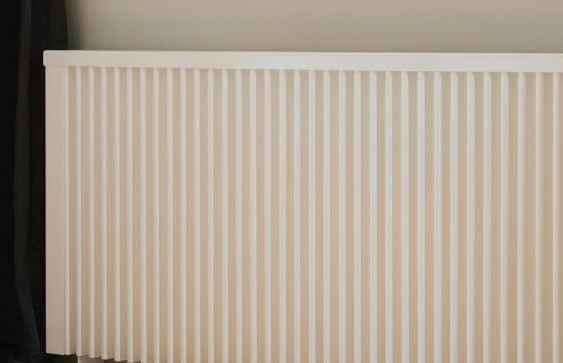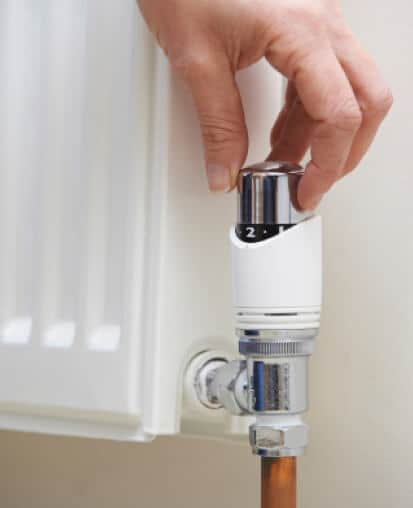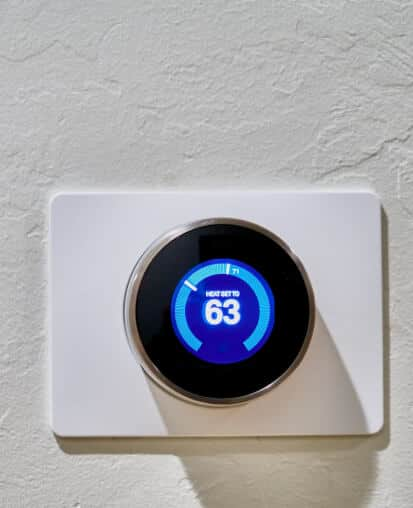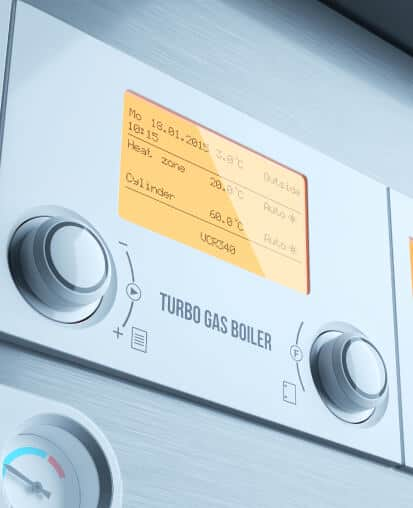Is it better to leave your
The idea that it’s better to leave your heating on all the time is a common misconception. It’s not necessarily more efficient or cost-effective to keep your heating on constantly at a low temperature. In fact, it can be more efficient to only heat your home when you need it.
Modern heating systems are designed to heat up space quickly, so there’s no need to keep the heating on when you’re not at home or when you’re asleep. Turning the heating off when you don’t need it and then turning it back on when you do is generally a more energy-efficient and economical way to manage your home’s heating.

Why do some people leave their heating on all the time?
Some homeowners think that keeping their heating on a constant low setting and turning the temperature up and down using the thermostat is a more economical way to warm the house, but this is a common falsehood. They believe that powering up their system every time they want to use it works out more expensive, but in most modern houses, this is not the case.
Some homeowners may leave their heating on all the time for specific reasons, such as:
Avoiding extreme temperature fluctuations:
Some individuals prefer to maintain a consistent indoor temperature for comfort reasons, especially if they have health concerns or if the temperature fluctuations would exacerbate certain conditions.
Older heating systems:
In some cases, older heating systems might take a long time to heat a space. In such situations, people might keep the heating on constantly to ensure the house remains warm.
Home insulation:
Poorly insulated homes can lose heat quickly. In such cases, people might feel the need to keep the heating on to compensate for the heat loss.
Personal preference:
Some people simply feel more comfortable with a constant, mild level of warmth and choose to keep the heating on all the time.
However, it’s essential to note that advancements in heating technology and better home insulation have made it more practical and energy-efficient to turn the heating off when you don’t need it. Using a programmable thermostat can help you maintain a comfortable temperature while optimising energy usage by lowering the temperature when you’re not at home or when you’re asleep. This approach is generally more cost-effective and environmentally friendly.
Weather compensation is the most common temperature control method used by many households. However, this is very different from leaving your heating on low constantly. Weather compensation is a feature in modern heating systems that adjusts the indoor temperature based on the outdoor weather conditions. It helps optimise the heating system’s efficiency by modulating the temperature of the water that flows through the radiators or underfloor heating based on the outside temperature.
The key differences between weather compensation and leaving your heating on low constantly are:
Adaptability
Weather compensation adjusts the heating based on external weather conditions, ensuring optimal indoor temperature. Constant low heating maintains a stable but unchanging indoor temperature.
Efficiency
Weather compensation is more energy-efficient because it reduces heating when the weather is mild. The boiler will only fire up when it’s needed, so you don’t need to worry about overheating your home and wasting money. Constant low heating uses energy continuously, without regard for whether this is necessary.
Cost
Weather compensation can lead to cost savings in the long run due to its energy efficiency. The system is designed to provide a consistent level of heat, helping you to reduce your energy bills without compromising on comfort. Constant low heating can result in higher energy bills as it consumes energy continuously.
Is it cheaper to leave the heating on all day?
Whether it is cheaper to leave the heating on low all day or only turn it on when you need it is a long-lived debate!
The Energy Saving Trust, a UK organisation dedicated to energy efficiency, advises not to leave your heating switched on all the time. They’re clear that having the heating on only when you need it is, in the long term, the best way to save energy, and therefore pounds. Using a thermostat timer is considered the best way to turn your heating on and off to keep your home at the temperature you set. Using a programmable thermostat can help you automate temperature adjustments based on your daily schedule, optimising energy usage and potentially saving you money.
It all comes down to the amount of energy required to heat your home. It is inevitable that a certain amount of energy is continually leaking out of our homes (the amount will depend on the efficiency of your insulation). The Energy Saving Trust says if you’re keeping the heating on constantly, you’re losing energy all day long, so it’s better to heat your home only when you need it.
The exception here may be during periods of freezing temperatures, where turning the heat off completely (even for a short period of time) could run the risk of pipes freezing. During these short-term spells, it may be better to leave the heating on at a lower temperature to prevent frozen pipes, especially if you have a very old boiler or a boiler that is not serviced annually.
Some would argue that keeping the heating on low all day, turning all the radiator valves up to the max, and the boiler down to the minimum is the better option. This is based on the theory that condensation collects within the walls each time the heating is turned off. Some argue this condensation can help conduct heat outside the walls of your home – meaning you will experience greater heat loss in a quicker time and use more energy as a result.
In general, it is more energy efficient to lower the thermostat when you are not at home or when you are sleeping. This reduces the amount of time your heating system is running and can save you money on your energy bills. However, completely turning off the heating in extreme temperatures can lead to pipes freezing and costly damage. Your decision will also depend on the climate you live in, the efficiency of your heating system, the insulation in your home, and your personal comfort, preferences, and needs.
Did you know?
Sleep experts recommend that the ideal bedroom temperature is 16-18 degrees Celsius. Temperatures over 24 degrees Celsius can negatively impact your sleep and cause restlessness.
Should you turn off the boiler when you go on holiday?
Our sister company, Maintracts Services, have answered this question perfectly in their blog ‘should I turn my boiler off when I go on holiday’.
What is the most economical way to use your central heating?
So, we have argued that leaving your boiler on all the time is generally not the most energy-efficient or economical options. But there are lots of things you can do to ensure you use your heating for greater cost-efficiency:
Only heat rooms that need to be heated
It is not always necessary to heat your entire home. For example, radiators in guest bedrooms that are not currently in use or a kitchen that will not be occupied until dinner time can be turned off until you need to use them. Adding thermostatic radiator valves to your radiators, will enable you to turn off the heat in individual rooms/areas of your home as and when you need to.
Use heating timers or programmers
Using heating timers or programmers can significantly enhance the cost-effectiveness of your heating system in various ways. By enabling you to set specific schedules, these devices ensure that your heating operates only when needed, preventing unnecessary energy consumption. For instance, you can program the system to warm your home before waking up and to turn off when you leave for work, avoiding heating an empty house. This optimised heating schedule not only saves energy but also reduces your utility bills.
Moreover, timers and programmers maintain consistent temperatures in your home, preventing overheating and ensuring comfort without wasteful energy use. These devices also contribute to environmental conservation by reducing your carbon footprint, making your heating system more eco-friendly.
Install a smart meter
A smart meter records how much energy you use and sends it back to your supplier. It comes with a display monitor that shows you how much energy you are using in almost real-time as well as the cost.
By monitoring your heating usage closely, you gain valuable insights into when and how much energy you’re using, enabling you to make informed decisions to reduce costs. You will be able to identify patterns in your heating usage. You can see how adjustments in your thermostat settings or changes in your daily routine impact your energy consumption. Armed with this information, you can make conscious choices, such as lowering the thermostat during periods of low activity or adjusting settings based on the weather forecast to optimise your heating system’s efficiency.
Smart meters often come with features like energy usage alerts and historical data tracking. These tools help you set energy usage goals and track your progress over time. By being aware of your energy consumption habits, you are more likely to make behavioural changes that lead to energy savings. For example, you might receive notifications when your energy usage is unusually high, prompting you to investigate and adjust your heating system to be more efficient.
Knowing how much electricity you use will help you to work out how much you could save if you switched supplier much more accurately than if you just relied on your estimated reading from your supplier (estimated readings can be quite unreliable).
Do you own an electric vehicle?
If you are considering a switch to an off-peak Economy 7 tariff, getting a smart meter would also help you to work out how much electricity you use overnight (between midnight and 7am) compared to during the day. This is because smart meters can show you your electricity use in half-hourly intervals rather than daily intervals.
Unlike Economy 7 meters (which offer 7 cheap hours overnight), smart meters mean you could get an off-peak tariff without having to get an additional ‘nighttime’ meter fitted just to record overnight use (assuming you already have a smart meter installed!). Don’t forget to check if you are eligible for grants and to have a look online to find out whether if might be cheaper for you to swich energy suppliers. A comparison website is a great place to start.
Whether you need further advice on how to use your heating effectively or information about boiler installation or other heating services, our team can help you. Contact us at your convenience.






